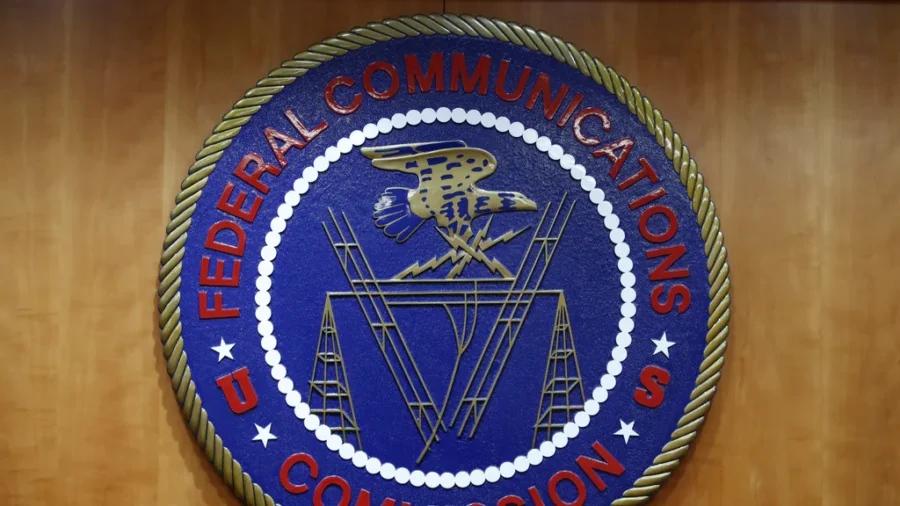The Federal Communications Commission (FCC) voted on Thursday to reinstate “net neutrality” rules that required internet service providers (ISPs) to enable access to all content and applications at the same speed, regardless of the source, and without favoring or blocking particular products or websites.
The net neutrality rules were first implemented by the FCC under President Barack Obama, but the commission reversed course during President Donald Trump’s administration.
In September, FCC Chairwoman Jessica Rosenworcel proposed reversing the Trump-era decision and reinstating the Obama-era rule. On Thursday, the commission took up the proposal and approved it. The vote came down to a 3-2 party-line decision, with the commission’s three Democrats favoring reinstating the rule and the two Republicans opposing the effort.
Democrats, who preferred the rule, were stymied for nearly three years because they did not have majority control of the five-member FCC until its newest member, Biden-nominee Anna Gomez, joined the commission in October, replacing Republican Ajit Pai.
Ms. Rosenworcel said the commission “believes every consumer deserves internet access that is fast, open, and fair.”
“The last FCC threw this authority away and decided broadband needed no supervision,” she said.
The Net Neutrality Debate
The debate over net neutrality comes down to how to fairly handle web traffic. Proponents argue that net neutrality is the correct approach because it prohibits ISPs from blocking certain web traffic or prioritizing traffic from preferred sources.
Announcing her plans to reinstate net neutrality in September, Ms. Rosenworcel argued the COVID-19 pandemic highlighted the need for ensuring fair access to the internet because many Americans were forced to either work from home or attend classes online during the pandemic-era.
Arguing in favor of reinstating the net neutrality rule on Wednesday, Ms. Rosenworcel called net neutrality a “popular” rule that treats broadband like an essential service. She said reinstating the rule would “prevent broadband service providers from blocking traffic, slowing down content, or creating pay-to-play internet fast lanes.”
Opponents of the net neutrality rule have argued that not all web traffic should be treated the same and that it makes sense to allow ISPs to prioritize some essential services occurring over the internet, such as emergency alerts and telemedicine. Opponents of the rule also argue that ISPs should be allowed to charge a premium for providing stable internet speeds for streaming and video conferencing services compared to services that don’t have the same demands to function.
“Netflix, Amazon, and the rest don’t want ISPs to charge either them or their consumers for their high-bandwidth content,” economic researcher and political commentator Jeffrey A. Tucker wrote in a 2017 article for the Foundation for Economic Freedom. “They would rather the ISPs themselves absorb the higher costs of such provision. It’s very clear how getting the government to make price discrimination illegal is in their interest. It means no threats to their business model.”
In that article, Mr. Tucker likened net neutrality rules to barring shipping companies from being able to set shipping rates based on the volume of items they move.
“Let’s imagine that a retailer furniture company were in a position to offload all their shipping costs to the trucking industry,” Mr. Tucker’s 2017 opinion reads. “By government decree, the truckers were not permitted to charge any more or less whether they were shipping one chair or a whole houseful of furniture. Would the furniture sellers favor such a deal? Absolutely. They could call this ‘furniture neutrality’ and fob it off on the public as preventing control of furniture by the shipping industry.”
Reactions
FreePress, a media advocacy organization that has favored net neutrality, praised the FCC’s decision on Thursday.
“Everyone should celebrate today’s FCC vote. Public support for Net Neutrality is overwhelming, and people understand why we need a federal watchdog to protect everyone’s access to the most essential communications platform of our time,” said Free Press co-CEO Craig Aaron. “The FCC heard the outcry and did its job: delivering on promises to stand with internet users and against big telecom companies and their trade groups, which have spent untold millions of dollars to spread lies about Net Neutrality and thwart any oversight or regulation.”
A group of Republican lawmakers, including House Energy and Commerce Committee Chair Cathy McMorris Rodgers and Senator Ted Cruz, called the plan “an illegal power grab that would expose the broadband industry to an oppressive regulatory regime,” giving the agency and states the power to impose rate regulation,
Reuters contributed to this article.


